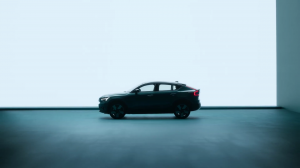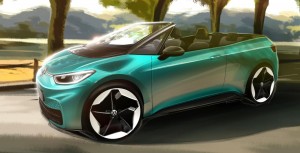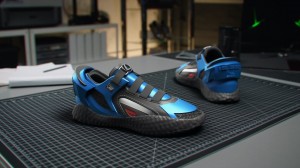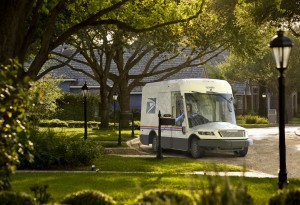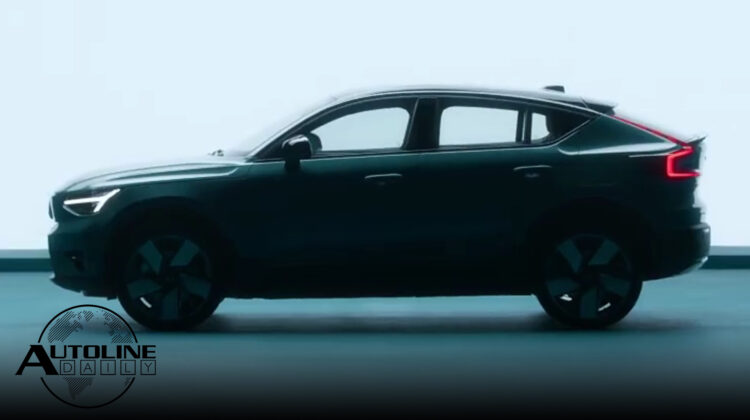
Listen to “AD #3027 – FCA Pleads Guilty to UAW Bribes; Volvo Teases New C-40 Recharge EV; Why USPS Isn't Going Fully Electric” on Spreaker.
Follow us on social media:
Runtime: 11:08
0:07 FCA Pleads Guilty to UAW Bribes
0:53 Volvo Teases New C-40 Recharge EV
1:55 India Ready to Give Tesla Concessions for Local Production
2:42 Tesla Launching FSD Subscription in Q2
4:15 Fisker Has “Completely Dropped Solid-State Batteries”
5:34 VW Reveals U.S. ID.4 Pricing
6:40 VW Wants Feedback on ID.3 Cabriolet Concept
7:42 Lexus Teams on Shoe Inspired by IS 350
8:48 Why USPS Isn’t Going Fully Electric
Visit our sponsors to thank them for their support of Autoline Daily: Bridgestone, Intrepid Control Systems and Magna.
This is Autoline Daily, the show dedicated to enthusiasts of the global automotive industry.
FCA PLEADS GUILTY TO UAW BRIBES
Guilty as charged. That’s what the judge said, and FCA agreed. It pleaded guilty for bribing UAW leaders to the tune of $3.5 million. And it will pay a $30 million fine, be under probation for three years, with an independent monitor keeping an eye on things. Two former UAW presidents, Dennis Williams and Gary Jones, and other union officials were found guilty of taking those bribes. FCAs former labor VP, Al Iacobelli, was found guilty of handing out the bribes, as well as pocketing some of the money himself. And we believe that if former FCA CEO Sergio Marchionne were still alive today, he’d be sitting in the slammer.
VOLVO TEASES NEW C-40 RECHARGE EV
Volvo sort of unveiled its newest electric car this morning, the C-40 Recharge. We say sort of because, while it showed brief flashes of the car, you actually have to go to special stores in New York, Milan and Tokyo to see it. Here’s what Volvo did tell us. It will have a 78 kilowatt hour battery delivering 420 kilometers, or 260 miles of range. It will have motors front and rear. And it can be recharged to 80% in 40 minutes. In profile it looks like a fastback version of the XC-40. Here’s the other thing. It will only be sold online. And customers can choose where they would like to take delivery. It doesn’t have to be at the dealership. In fact, going forward, Volvo says all its electric cars will be sold online. It expects that 50% of its sales will be BEVs in 2025, and 100% by 2030.
INDIA READY TO GIVE TESLA CONCESSIONS FOR LOCAL PRODUCTION
There have been a number of reports recently that Tesla is looking to open a manufacturing plant in India. And now Reuters reports that the country is ready to offer Tesla enough incentives that would make building cars cheaper in India than in China. India’s transport minister said that instead of doing knock down assemblies, it should build the entire vehicle in the country, “Then we can give higher concessions.” Reuters said it didn’t receive a response from Tesla when asked to comment on the report. But it’s no secret that the EV maker has its eye on India. Tesla recently registered a company in India and Reuters says it plans to start importing and selling the Model 3 in the country sometime this year.
TESLA FSD SUBSCRIPTION COMING IN Q2
And in other Tesla news, Elon Musk confirmed on Twitter that it will launch its subscription service for Full Self-Driving sometime in the second quarter of the year. Electrek reports that the subscription is expected to cost at least $100 a month, while buying the package outright is $10,000. Even though the latter is a hefty price, Musk says that it’s a better deal long-term than the subscription.
FISKER “COMPLETELY DROPPED SOLID-STATE BATTERIES”
Henrik Fisker once claimed he had a solid-state battery breakthrough that would deliver 500 miles of range and a one minute recharging time. Now he says he sees no future in solid state batteries. Reports surfaced last week that Fisker Inc settled a lawsuit filed by solid-state battery maker Quantumscape, which claimed a former employee stole trade secrets and took them to Fisker. Fisker denies it got any information that wasn’t already public, but did pay $750,000 to settle the lawsuit. In an interview with The Verge, Henrik Fisker says, “we have completely dropped solid-state batteries at this point in time because we just don’t see it materializing.” Lawsuit aside, this should come as little surprise. Companies with far greater resources aren’t pegging their first solid-state batteries to hit the market until the middle of the decade. What’s more, Fisker’s plans have changed since it first started talking about using its own solid-state batteries. It’s Ocean SUV is being built by Magna on a platform developed by Magna and another yet-to-be-named vehicle will come from Foxconn on a platform the iPhone-maker developed.
VW SETS ID.4 PRICE IN THE U.S.
Volkswagen told us what it’s going to charge in the U.S. for the ID.4 EV. To simplify things VW will offer four trim levels and one package. The first to launch this year will be rear-wheel drive versions with the entry-level Pro model starting at a little over $41,000, including destination, but before the federal tax credit. That setup gets you 201 horsepower, an 82 kWh battery pack and an EPA range of 250 miles. An all-wheel drive version is coming out later in 2021 and will add about $3,700 to the price. If someone were to check all of the boxes the price would come out to shade over $51,000. It’s also important to note that customers will get three years of free charging at Electrify America stations. The ID.4 is currently built in Germany and China, but VW says it plans to start making them in the U.S. sometime in 2022.
VW ASKS FOR FEEDBACK ON ID.3 CABRIOLET CONCEPT
VW’s MEB platform can support everything from a minivan to a dune buggy, and now that includes a convertible. CEO Herbert Diess Tweeted out these pictures of an ID.3 Cabriolet concept car and asked for public reaction. We think it looks good, but wonder if VW would pull the trigger on something like this anytime soon. It’s already dedicating billions to its electric future, so we could see why it would want to come out with high-volume vehicles rather than niche ones, like a convertible. But on the other hand, EVs like buggies and convertibles up a company’s cool quotient and can drive customers to its other products. So, let us know what you think. Do you like the looks of the ID.3 Cabriolet? And if you were Volkwagen, would you do high-volume cars first or do you need cool cars to get more customers interested in the brand?
LEXUS TEAMS TO MAKE SHOE INSPIRED BY THE IS 350
Lots of people already despise Lexus’ styling and we’re not sure this is going to help any. Lexus teamed up with shoemaker RTFKT to design a sneaker inspired by the IS 350 F Sport. The co-founder of the company says, “We wanted to make sure when the audience looks at the sneaker they instantly know it is the IS.” If not for the Lexus logo, F Sport badging and IS 350 in big letters on the back, I don’t think I would have ever guessed this shoe was inspired by the car. But, then again, we’re not sneakerheads. We’ll let you tell us what you think.
Coming up next, John will be here with an op-ed on why the US Post Office decided not to go with electric delivery trucks.
WHY POST OFFICE ISN’T GOING FULLY ELECTRIC YET
We’re trying something new here on Autoline Daily. I’ll be jumping in on a regular basis to give you my opinions on what’s going on in the auto industry. And I’ll kick it off with my views on the latest Post Office contract.
A lot of people want to know why the U.S. Post Office did not commit to EVs only as it goes to its next generation of delivery trucks. Workhorse, the only company to submit a bid for a pure battery electric, wants to know too. It’s going to meet with the Post Office tomorrow to learn why. And I think they’re going to hear four reasons why they lost the bid.
First, the Post Office doesn’t have the charging stations at its yards. They can be installed, but it could take years. For example, my local post office has about 100 trucks in its yard parked in a big lot. That’s a lot of charging stations. And that’s just one local post office.
Second, the Post Office doesn’t have techs trained to service the batteries, inverters and electric motors. They can be trained but that will take time.
Third, Workhorse, the only company to submit a bid for an all electric, is a startup that’s never made a vehicle before.
Fourth, the Post Office lost $9 billion last year. That wasn’t a one off fluke. It loses billions every year. And going fully electric would have cost it another $3 to $4 billion.
So that’s why the Post Office went with Oshkosh. It’s been around over 100 years and has supplied the Army with trucks for decades. Oshkosh will mostly build a Post Office truck with a gasoline engine. Right now the contract calls for 10% of those trucks to be electric. But I think that over time, more and more could actually come with batteries.
But that’s a wrap for this show. Thanks for watching and we’ll be right back here again tomorrow.
Thanks to our partner for embedding Autoline Daily on its website: WardsAuto.com
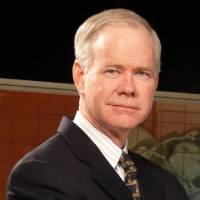
John McElroy is an influential thought leader in the automotive industry. He is a journalist, lecturer, commentator and entrepreneur. He created “Autoline Daily,” the first industry webcast of industry news and analysis.




